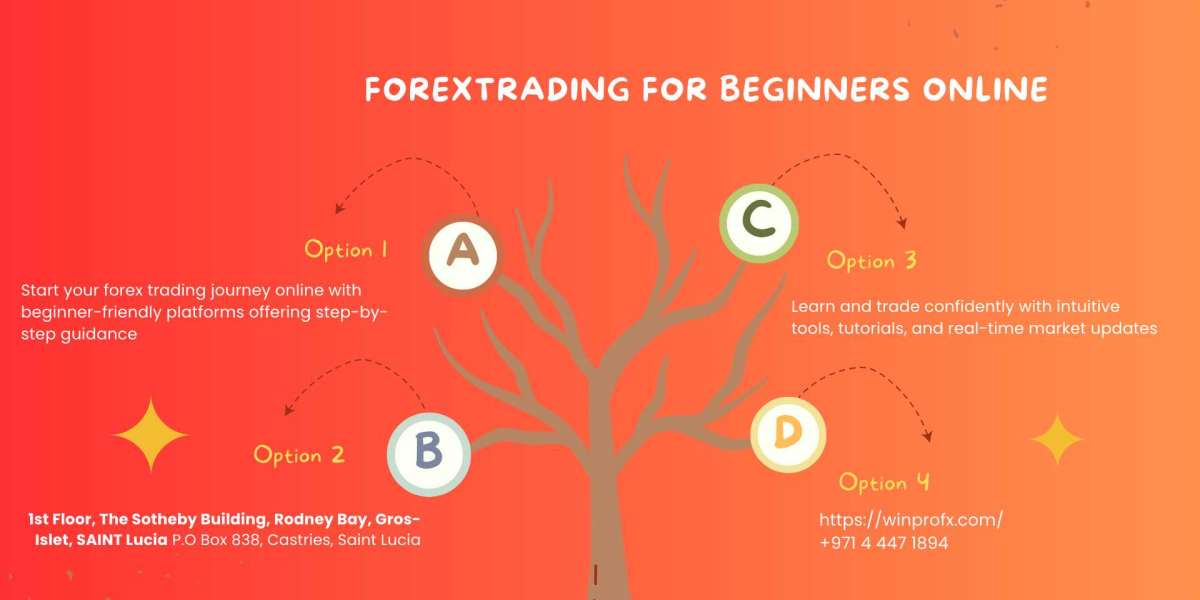Forex trading for beginners online can be an exciting and profitable way to engage with the financial markets, but it requires a solid understanding of the basics before diving in. Here's a comprehensive guide to help beginners get started in online Forex trading:
1. Understanding Forex Trading
Forex (foreign exchange) trading involves buying and selling currencies in a global market. The goal is to profit from the fluctuations in currency prices. Currency pairs, like EUR/USD (Euro/US Dollar) or GBP/JPY (British Pound/Japanese Yen), are traded. When trading Forex, you're always buying one currency and selling another at the same time.
2. Choosing the Right Forex Broker
As a beginner, selecting a reliable Forex broker is crucial. Look for the following qualities:
- Regulation: Ensure the broker is regulated by a reputable authority like the Financial Conduct Authority (FCA), U.S. Commodity Futures Trading Commission (CFTC), or the Australian Securities and Investments Commission (ASIC).
- Platform: Most brokers provide platforms such as MetaTrader 4 (MT4), MetaTrader 5 (MT5), or their proprietary platforms. These platforms offer charts, analysis tools, and order execution features.
- Low Spreads and Leverage: For beginners, brokers offering low spreads (the difference between the buying and selling price) and reasonable leverage are ideal.
Some popular online Forex brokers for beginners include IG Group, OANDA, FXTM, AvaTrade, and Pepperstone.
3. Open a Demo Account
Before using real money, start with a demo account. Most brokers offer free demo accounts where you can practice trading with virtual funds. This allows you to familiarize yourself with the trading platform, test strategies, and build confidence without risking real money.
4. Learn Basic Forex Terminology
Understanding key Forex terms is essential. Some important ones include:
- Pip: The smallest price movement in a currency pair.
- Leverage: Borrowed capital that allows traders to control larger positions with a smaller investment. While leverage can amplify profits, it also increases risk.
- Lot Size: The volume of a trade. A standard lot is 100,000 units of the base currency.
- Spread: The difference between the buying and selling price of a currency pair.
- Margin: The deposit required to open and maintain a leveraged position.
5. Develop a Trading Plan
As a beginner, having a well-thought-out trading plan is essential. Your plan should include:
- Risk Management: Set a limit on how much of your trading capital you're willing to risk on each trade (typically 1-2% per trade).
- Trading Strategy: Decide whether you want to trade based on technical analysis (charts, trends) or fundamental analysis (economic news, interest rates).
- Goals: Set realistic goals for your trading, such as daily or monthly profit targets.
6. Start Small
It's easy to get carried away with the excitement of Forex trading, but as a beginner, it's important to start small. Focus on trading smaller positions until you gain more experience and understanding of the market.
7. Learn to Read Forex Charts
Understanding how to read Forex charts is essential for making informed trading decisions. Key chart patterns and indicators that beginners should learn include:
- Candlestick Patterns: These help you analyze the market sentiment and predict price movements.
- Support and Resistance Levels: Identifying these levels helps you understand where the price is likely to reverse or break through.
- Moving Averages: These indicators help smooth out price data to identify trends.
- RSI (Relative Strength Index): Helps determine whether a currency pair is overbought or oversold.
8. Keep Up with Market News
Forex markets are highly influenced by global economic and political events. Stay updated on economic calendars, central bank announcements, and geopolitical news that can affect currency prices. Websites like Forex Factory, Investing.com, and Bloomberg offer up-to-date news and analysis.
9. Understand Risk Management
Risk management is crucial in Forex trading, especially for beginners. Common risk management techniques include:
- Stop-Loss Orders: A stop-loss order automatically closes your trade at a certain price to limit losses.
- Take-Profit Orders: This order locks in profits by automatically closing a trade when a specific price is reached.
- Position Sizing: Avoid risking too much of your capital in one trade. Use small position sizes to reduce the risk of large losses.
10. Practice and Patience
Forex trading requires time, practice, and patience. Avoid rushing into large trades, and focus on developing your skills. Keep track of your trades and analyze your performance to learn from mistakes and improve over time.
11. Explore Educational Resources
Many online brokers provide free educational resources to help beginners. These may include tutorials, webinars, articles, and trading courses. Use these resources to build your knowledge and refine your trading strategies.
Conclusion
Forex trading for beginners can be a profitable venture if approached with caution, patience, and the right tools. Start with a demo account, learn the basics of Forex terminology and chart reading, and develop a solid trading plan with risk management strategies. Over time, you will gain the experience necessary to trade successfully in the exciting and dynamic world of Forex.








